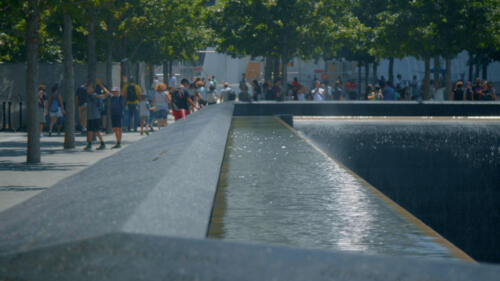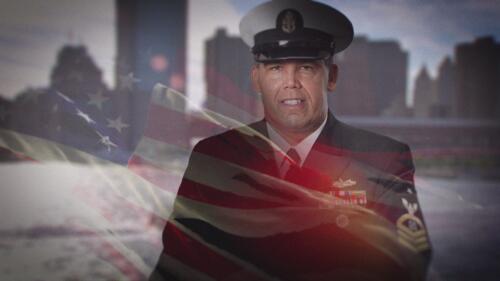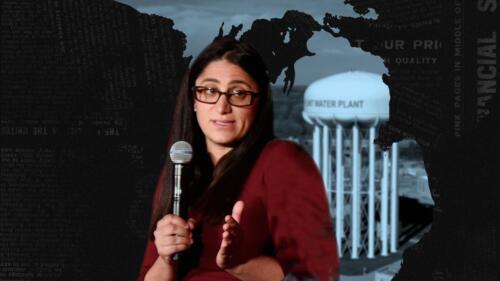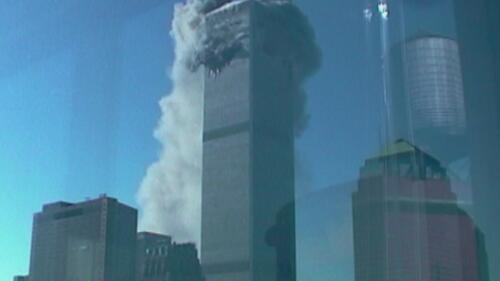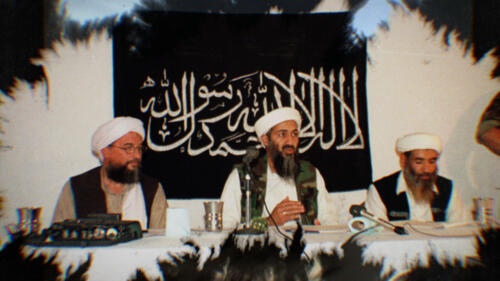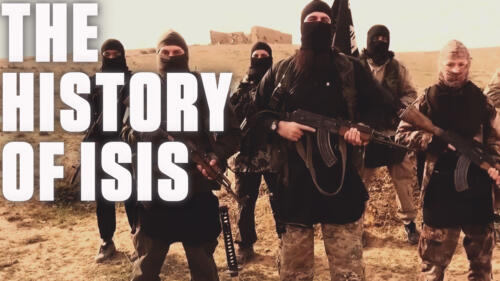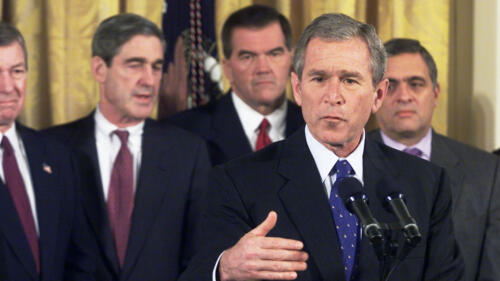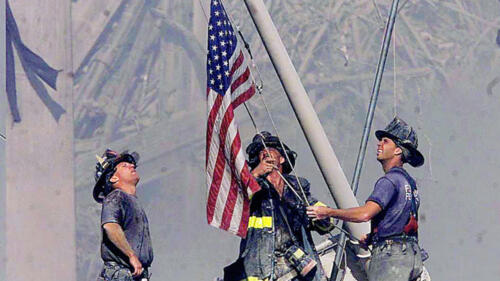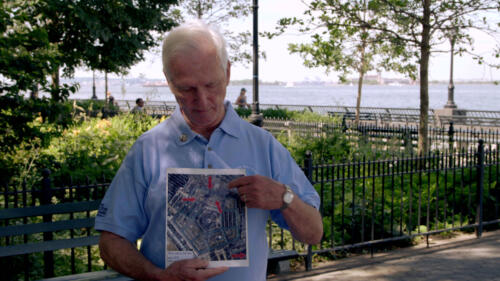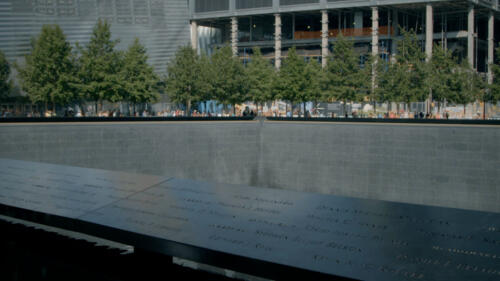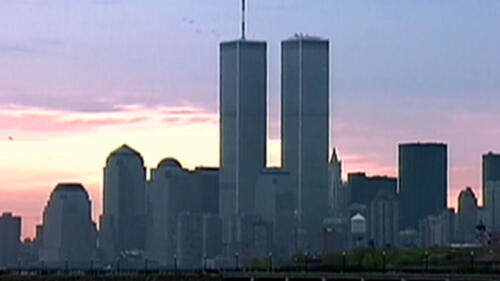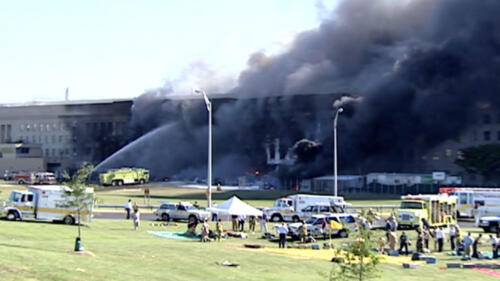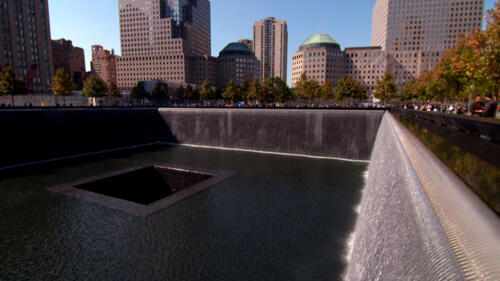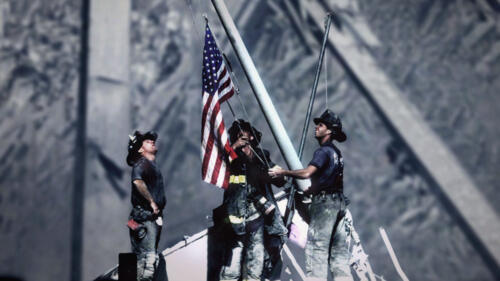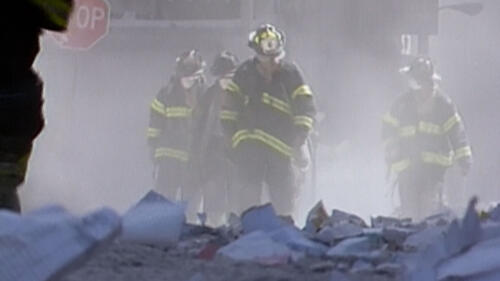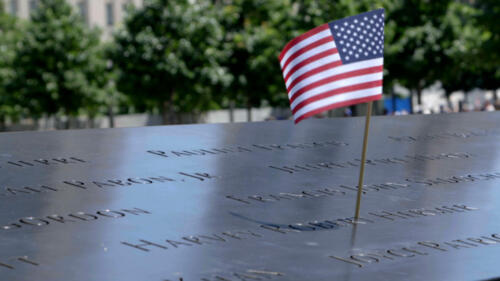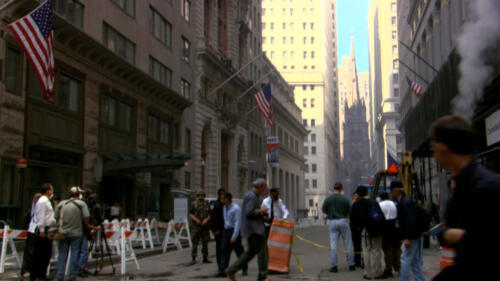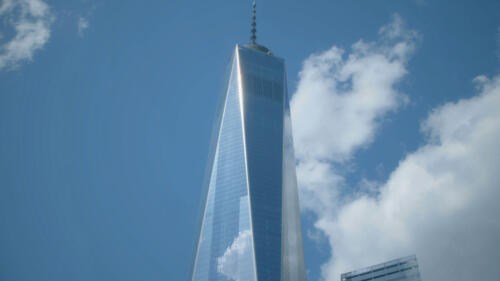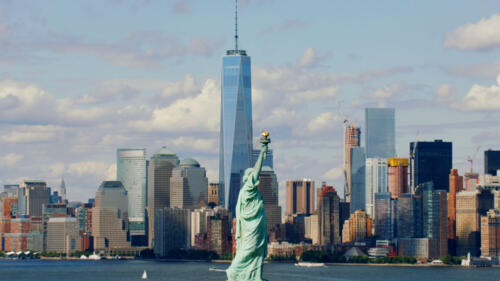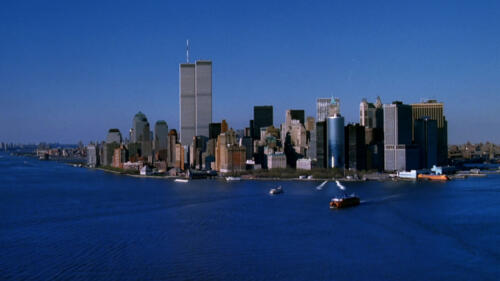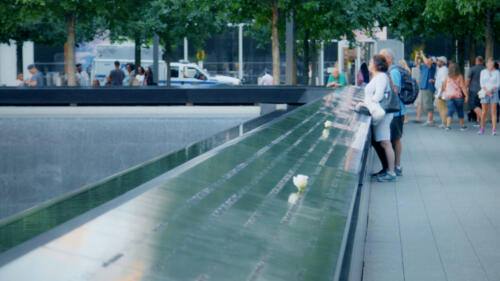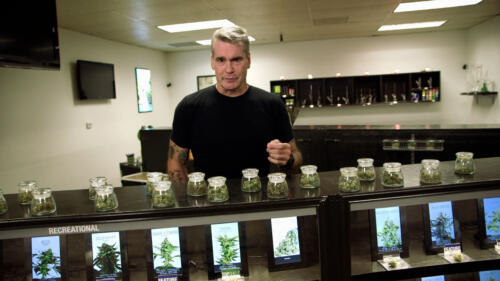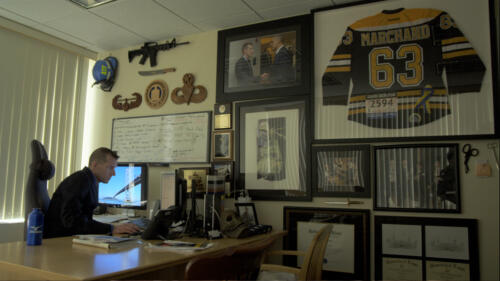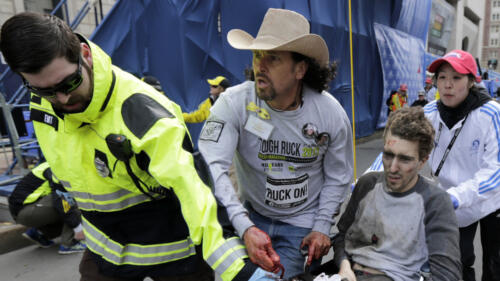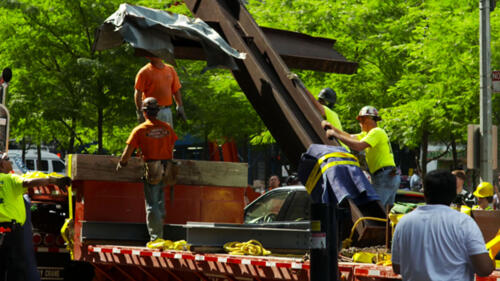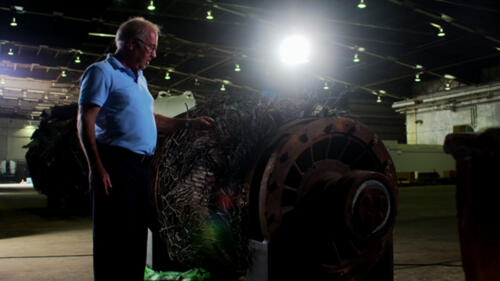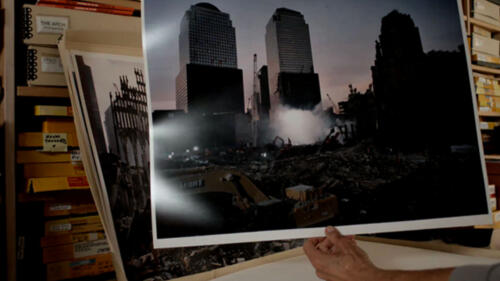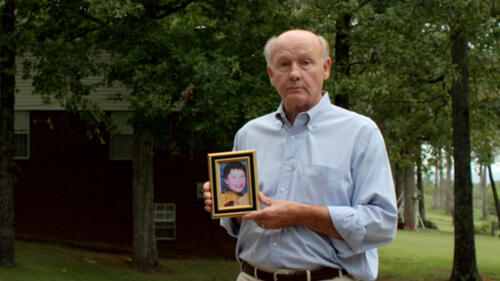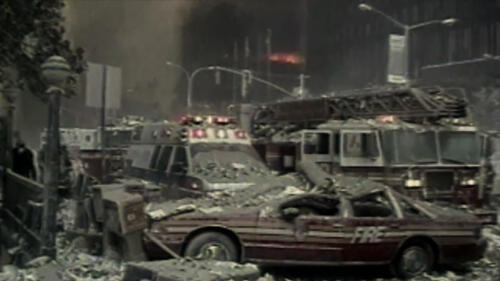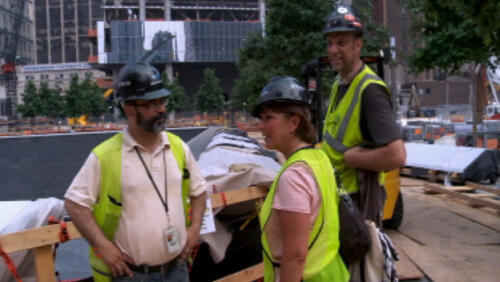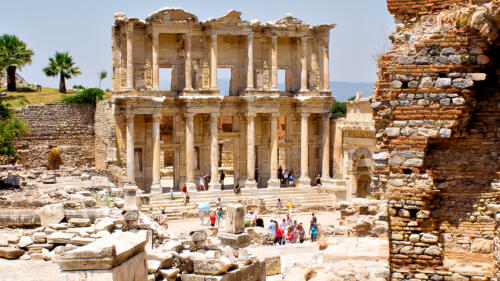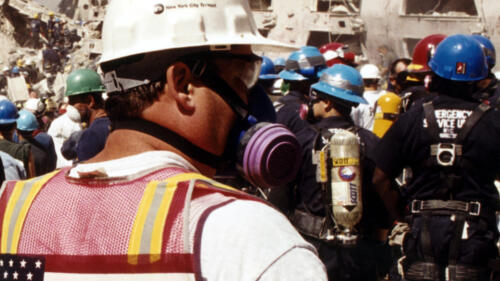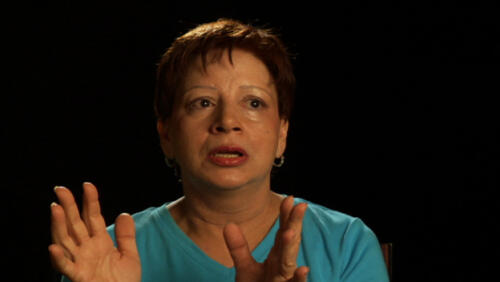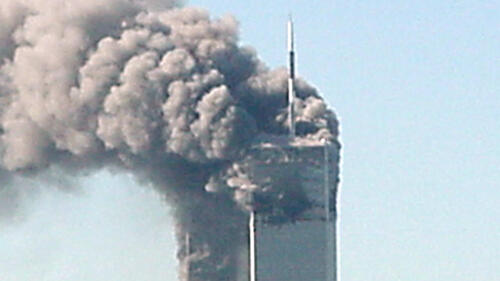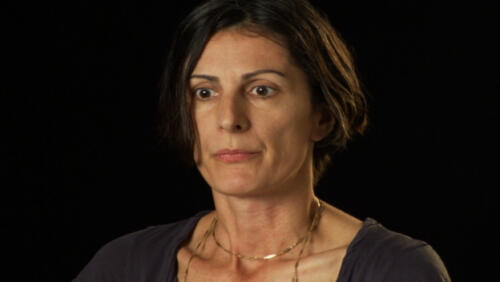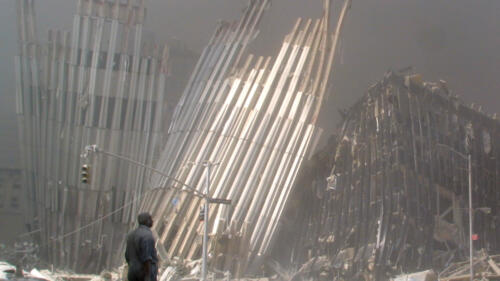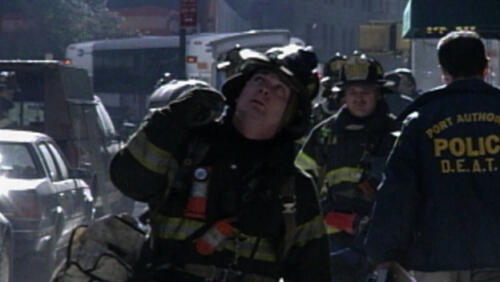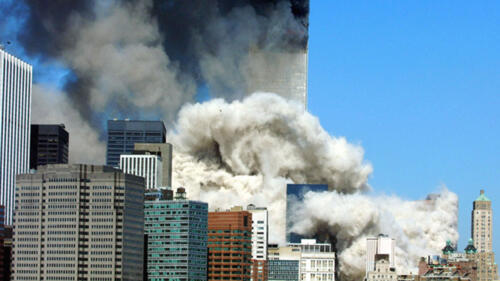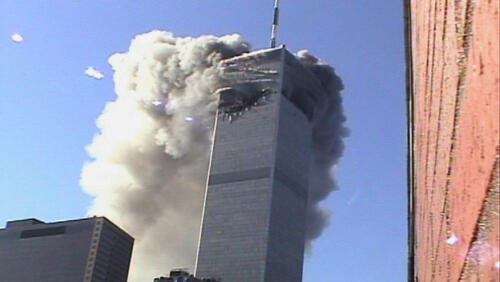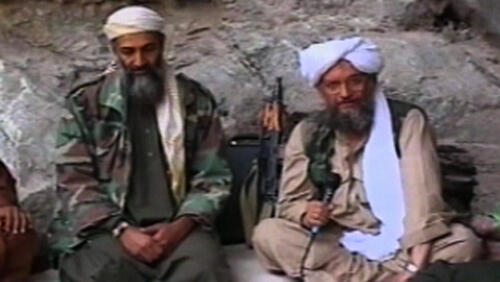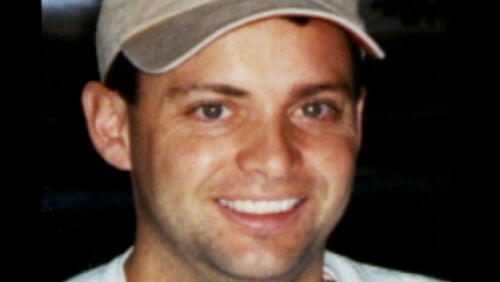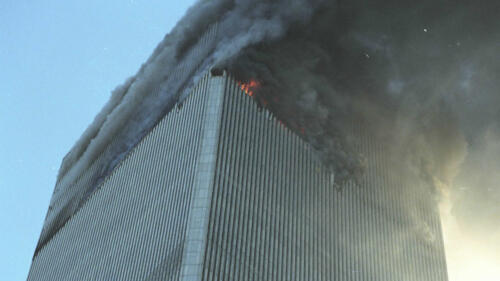21st Century
The 21st century saw the dawn of the war on terrorism, as the 9/11 attacks and the Boston Marathon bombing dramatically changed society. Economic issues moved to the forefront during the Great Recession. The COVID-19 pandemic upended lives and economies around the world. Awareness of social inequality grew as the killings of Black Americans, including Trayvon Martin and George Floyd, spurred widespread protests.

Start Here

In the wake of the attacks of 9/11, President George W. Bush called for a global "War on Terror," launching an ongoing effort to thwart terrorists before they act.

Breaches in the system of levees and floodwalls left 80 percent of the city underwater.

Look back at 14 events, achievements, tragedies and otherwise memorable moments that stood out during the 2010s.

The 2020 outbreak of the infectious respiratory disease known as COVID-19 triggered one of the deadliest pandemics in modern history.
Here’s What Caused the Great Recession
Here's What Caused the Great Recession
Discover the confluence of events that prompted the Great Recession in America and its main culprit: the subprime mortgage housing crisis. Learn how the Great Recession affected the economy and how it differed from the Great Depression of the 1930s.
The Great Recession: 3 Key Moments
Explore All Related Topics

The phrase that suggests a failure to pick up on social cues has been around for at least 50 years.

Firefighters. First responders. Ordinary citizens. Even canines.

Since 1990, the world's top codebreakers have been stumped by a mysterious sculpture called 'Kryptos.'

Civil War secrets found in a battlefield garbage pile. A jewel thief in a powdered wig who hastened Marie Antoinette’s downfall. A Supreme Court showdown started by barmaids. Discover 25 fascinating—and often overlooked—moments that made history.

On the morning of 9/11 in New York City, ordinary people picked up video cameras and recorded. This is what they saw—and how they reflected on the experience years later.

The 2020 outbreak of the infectious respiratory disease known as COVID-19 triggered one of the deadliest pandemics in modern history.

The April 15, 2013 bombing inflicted horror on a beloved Boston tradition and led to one of the most intensive manhunts in history.

Americans born in or with ancestral ties to Arab-speaking countries have made countless significant scientific, medical and engineering contributions.

Celebrating the rich and diverse culture and contributions of of the diverse population of Arab Americans, National Arab American Heritage Month has been observed during the month of April since 2017.

The year 2021 saw political turmoil, the distribution of COVID-19 vaccines, an unusual Olympic Games, devastating natural disasters, advances in space exploration and more.

The first Indigenous cabinet member in U.S. history, Haaland hails from a lineage of 35 generations based in New Mexico.

Here’s how the profession’s most chaotic—and harrowing—day unfolded.

From the foundation to the elevators, everything about the Twin Towers was supersized.

From David Letterman's emotional monologue to George W. Bush's World Series first pitch, these collective experiences helped the nation process its shock and grief.

The U.S. launched the war in Afghanistan following the September 11, 2001 terrorist attacks. The conflict lasted two decades and spanned four U.S. presidencies, becoming the longest war in American history.

When the plane crashed in a Pennsylvania field on September 11, it was 20 minutes flying time from the nation's capital.

To build the twin towers, architects and engineers employed innovative—and sometimes unproven—techniques and technology.

The image captures a defining historic moment, as Barack Obama and his top advisers anxiously watch the high-stakes SEAL Team Six operation unfold.

Before the 9/11 mastermind was killed in a SEAL Team raid in his Abbottabad, Pakistan compound, he and his family lived isolated, austere lives there.

Political, religious and practical considerations all played a role.

From al Qaeda emails to Disney films to pornography, the terrorist leader had a wide array of diversions in his Pakistan hideout.

2020 was a tumultuous year that saw the onset of a deadly pandemic, widespread protests over systemic racism—and a deeply contentious election.

The murder of the British royal and World War II hero signaled a dark period ahead for relations between England and Northern Ireland.

The cockpit voice recorder captured the sound of passengers attempting to break through the door.

'We pledge to never leave a fallen comrade behind,' says one of the survivors.

The attacks of 9/11 shocked the nation—and led to changes that altered U.S. government, travel and culture.

Breaches in the system of levees and floodwalls left 80 percent of the city underwater.

The 2005 hurricane and subsequent levee failures led to death and destruction—and dealt a lasting blow to leadership and the Gulf region.

There’s a saying that the worst of times bring out the best in people.

Slow reporting in China and an outbreak in a Hong Kong hotel led to over 8,000 infections in more than 20 countries.

Violence in Eastern Europe, the Middle East and West Africa has taken a toll on historic buildings and monuments.

Look back at 14 events, achievements, tragedies and otherwise memorable moments that stood out during the 2010s.

Take a look back at the most important events in politics, culture, science and the environment.

Images show devastation during the 2001 terror attacks, and the tragic aftermath.

On September 11, the Secret Service decided the safest place for the president was on board Air Force One. But being in the skies added to the day’s confusion.

On September 11, 2001, 125 people inside the Pentagon were killed. The losses were devastating, but it could have been even worse.

The harrowing decision was made during the first hour after the attacks—by Vice President Cheney.

Watch videos about the attacks of 9/11 and the aftermath.

The firefighter deaths on Sept. 11 amounted to more than a third of the approximately 1,000 emergency personnel at the scene.

Overspending, lower oil prices and political unrest all combined to trigger a decline for the once-prosperous nation.

In the wake of the attacks of 9/11, President George W. Bush called for a global "War on Terror," launching an ongoing effort to thwart terrorists before they act.

Congress gets a record number of women, The U.K. “brexits” and we commemorate the 75th anniversary of D-Day.

The year 2018 was marked by milestones in the #MeToo movement, a contentious Supreme Court hearing, battles over immigration and a groundbreaking royal wedding.

The global terror network founded by Osama bin Laden has been responsible for thousands of deaths on 9/11 and several other deadly attacks across the globe.

A.J. Luna worked in security and convoy communications. The threat of being hit by a bomb or a sniper was constant.

A look at what caused the worst economic crisis since the Great Depression.

Among the missteps: lack of intel-sharing between agencies, tepid responses to earlier attacks and a failure to grasp the magnitude of the terrorists' ambitions.

From a bloodied pair of shoes, to IDs to jewelry, here is a look at some of the 9/11 Memorial Museum’s more than 11,000 artifacts—and the heavy stories they carry.

After the jets hit, stairwells became the sole means of escape for thousands of WTC occupants. But design choices hampered full evacuation—and made the descent even more harrowing.

Her father might have been the pilot of United Flight 93, but Penney and her commanding officer had a singular focus.

For two days New Yorkers slept on sidewalks, walked home, even showered on the streets and generally made do as the city was crippled without power.

Veterans and Wounded Warrior Project volunteers share what they’ve learned.

The operation to kill the world's most wanted terrorist was the result of years of planning and training.

Beyond the war on terror, Bush took significant action to combat AIDS, particularly in Africa.

The military-industrial complex, a term made famous by President Dwight D. Eisenhower, is the relationship between a country's military and armaments suppliers.

Why TARP Was Created In 2008, Americans struggled under the Great Recession, the worst economic calamity since the Great Depression. While no single event is to blame for the financial crisis, many experts believe lax credit requirements for low-income ...

The Dodd-Frank Act, signed into law by President Obama in 2010, placed regulations on lenders and banks to protect consumers and prevent another recession.

This year's most compelling cultural fare looked to the past. Here are our top picks.

The Patriot Act, signed into law following the terrorist attacks of September 11, 2011, expanded the surveillance capabilities of U.S. law-enforcement agencies.

2017 yielded a special counsel investigation into President Trump, protests over Confederate monuments and the first coast-to-coast solar eclipse in a century.

Learn about key moments in the Great Recession of 2007-09, from the collapse of Bear Stearns and the bank bailouts to the signing of the Dodd-Frank Act.

The Great Recession, which began in late 2007, roiled world financial markets as the longest period of economic decline since the Great Depression of the 1930s.

“The Arduous March” wiped out hundreds of thousands—perhaps millions—of North Koreans.

Centuries before news media kept the War on Christmas in the headlines, the Puritans waged a longrunning battle to ban Christmas in Europe and the New World.

Two September 11 experts discuss the motives behind the attacks, how U.S. leaders missed so many warning signs and what it was like to meet Osama bin Laden.

Emad Salem, an Egyptian immigrant who went undercover with terrorists, helped prevent the bombing of multiple New York City landmarks.
Before 9/11, only a few dedicated law-enforcement and intelligence agents understood the enormity of the terrorists' ambitions. They had a hard time convincing their bosses.

Afghanistan's location, its rough terrain and multiple ethnic groups and tribes make it a challenging place to wage war.

The Islamic State of Iraq and Syria—also know as ISIS or ISIL—is a jihadist militant group and terrorist organization that formed in 1999.

The former FBI agent was sentenced to life in prison for selling U.S. secrets to Moscow.

Explore the (mostly) secret history of the Naval Special Warfare Development Group, aka SEAL Team Six.

Since its founding in 1945, the organization has been on the front lines of some of the biggest events in world history.

Learn the real-life story of Chris Kyle, the late Navy SEAL sharpshooter portrayed in the Oscar-nominated film “American Sniper.”

The Boston Marathon Bombing was a terrorist attack that occurred on April 15, 2013 when two bombs—planted by brothers Dzhokhar and Tamerlan Tsarnaev—went off near the finish line of the Boston Marathon. Three spectators were killed more than 260 were injured.

Rudy Giuliani is a former prosecutor who drew attention as New York City mayor for declining crime rates and his leadership following the September 11 attacks.

Track the day and subsequent fallout from the devastating attacks of September 11, 2001.

Challenges of Rebuilding After 9/11 Immediately after 9/11, a number of prominent leaders—including New York City Mayor Rudolph W. Giuliani and U.S. President George W. Bush—pledged to quickly rebuild the World Trade Center site as an inspiring symbol o...

The 9/11 Commission Report was published on July 22, 2004, three years after the terror attacks of September 11, 2001. The report studied U.S. preparedness and responsiveness to the attacks and provided recommendations to guard against future threats.

SEAL Team Six's security and counterterrorism missions have ranged from Grenada to Bosnia to Iraq.

As 2011 prepares to make its arrival, we take a look at some of the most exciting and consequential stories from this year in history.

United Airlines Flight 93 was hijacked by members of the Islamic extremist group al-Qaeda on September 11, 2001. It crashed down in a field in rural Pennsylvania, never reaching its intended target because its crew and passengers fought back against the terrorists.

Following the attacks of 9/11, the World Trade Center site was referred to as "Ground Zero" or "the Pile." Thousands of first responders and others rushed to the area in New York City's Lower Manhattan to search for survivors.

Shortly after the Twin Towers fell on September 11, 2001, the nation began to mourn, and around the country Americans began to commemorate the victims and demonstrate their patriotism, although backlash against Arab Americans and others also emerged.

On September 11, 2001, 19 militants associated with the Islamic extremist group al Qaeda hijacked four airplanes and carried out suicide attacks against targets in the United States. Two of the planes were flown into the twin towers of the World Trade Center in New York City, a third plane hit the Pentagon just outside Washington, D.C., and the fourth plane crashed in a field in Pennsylvania.

The space shuttle Columbia broke apart on February 1, 2003, while re-entering the Earth’s atmosphere, killing all seven crew members. The disaster, which occurred over Texas, was caused by a piece of foam insulation that broke off the shuttle’s propellant tank and damaged the edge of the shuttle’s left wing.

Osama bin Laden founded the Islamist militant group Al Qaeda and was believed responsible for deadly acts of terrorism such as the September 11, 2001 attacks.
